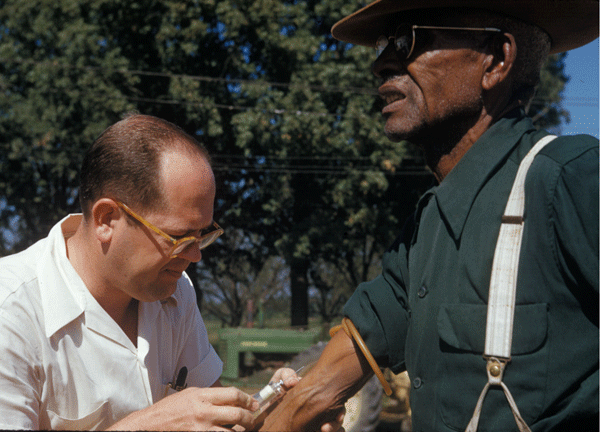Diane’s farewell message
After 52 years at WAMU, Diane Rehm says goodbye.

A doctor injects a man with placebo as part of the Tuskegee Syphilis Study.
This week marks five decades since an A.P. journalist broke the story about the Tuskegee Study, a government project that came to symbolize medical racism in America.
Between 1932 and 1972 doctors let syphilis go untreated in hundreds of black men in Alabama without their knowledge. Since then, researchers have pointed to Tuskegee as a central cause of mistrust between Black Americans and medical institutions.
Studies show this mistrust causes poor health outcomes, and even a decrease in life expectancy among Black men.
Harvard professor Evelynn Hammonds is an expert on the intersection of race and disease. She says the Tuskegee Study is only part of a much longer story about medical racism in the United States, a story that provides valuable lessons for addressing health inequities in the United States today.
After 52 years at WAMU, Diane Rehm says goodbye.
Diane takes the mic one last time at WAMU. She talks to Susan Page of USA Today about Trump’s first hundred days – and what they say about the next hundred.
Maryland Congressman Jamie Raskin was first elected to the House in 2016, just as Donald Trump ascended to the presidency for the first time. Since then, few Democrats have worked as…
Can the courts act as a check on the Trump administration’s power? CNN chief Supreme Court analyst Joan Biskupic on how the clash over deportations is testing the judiciary.